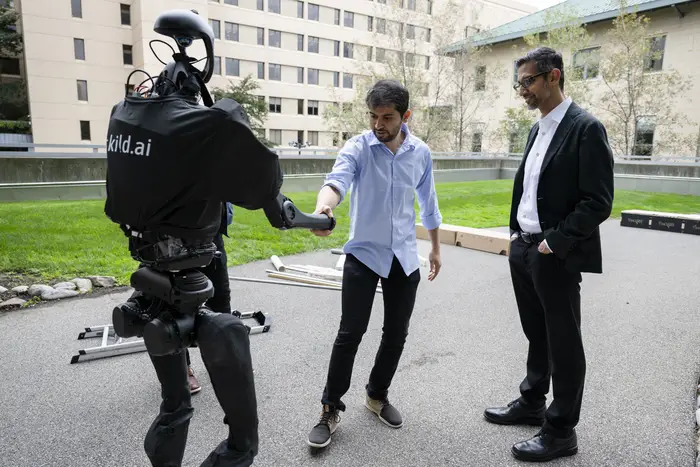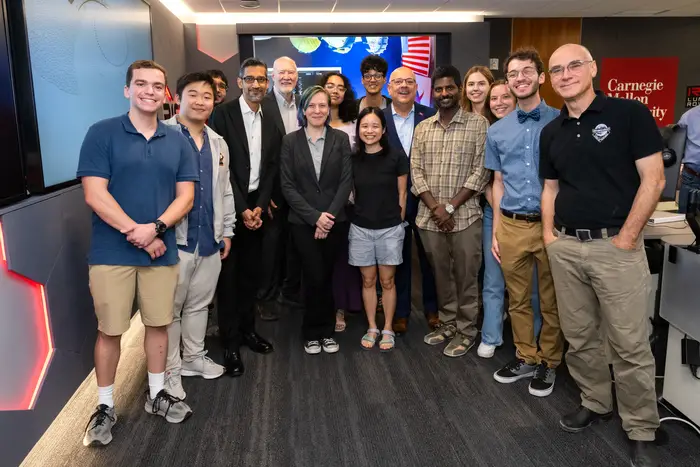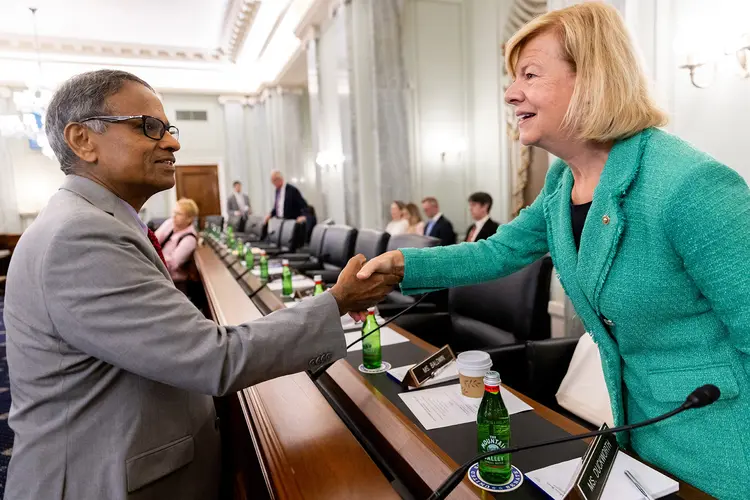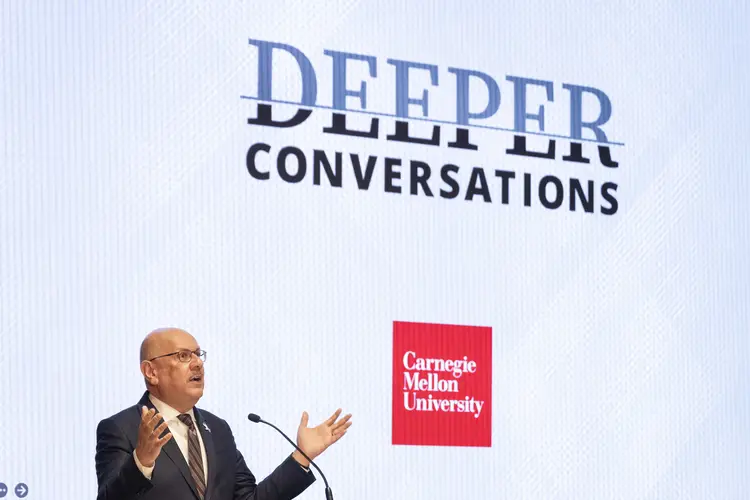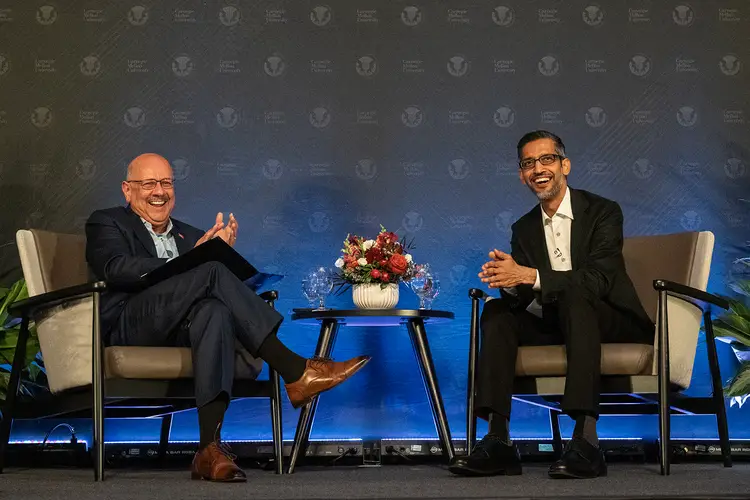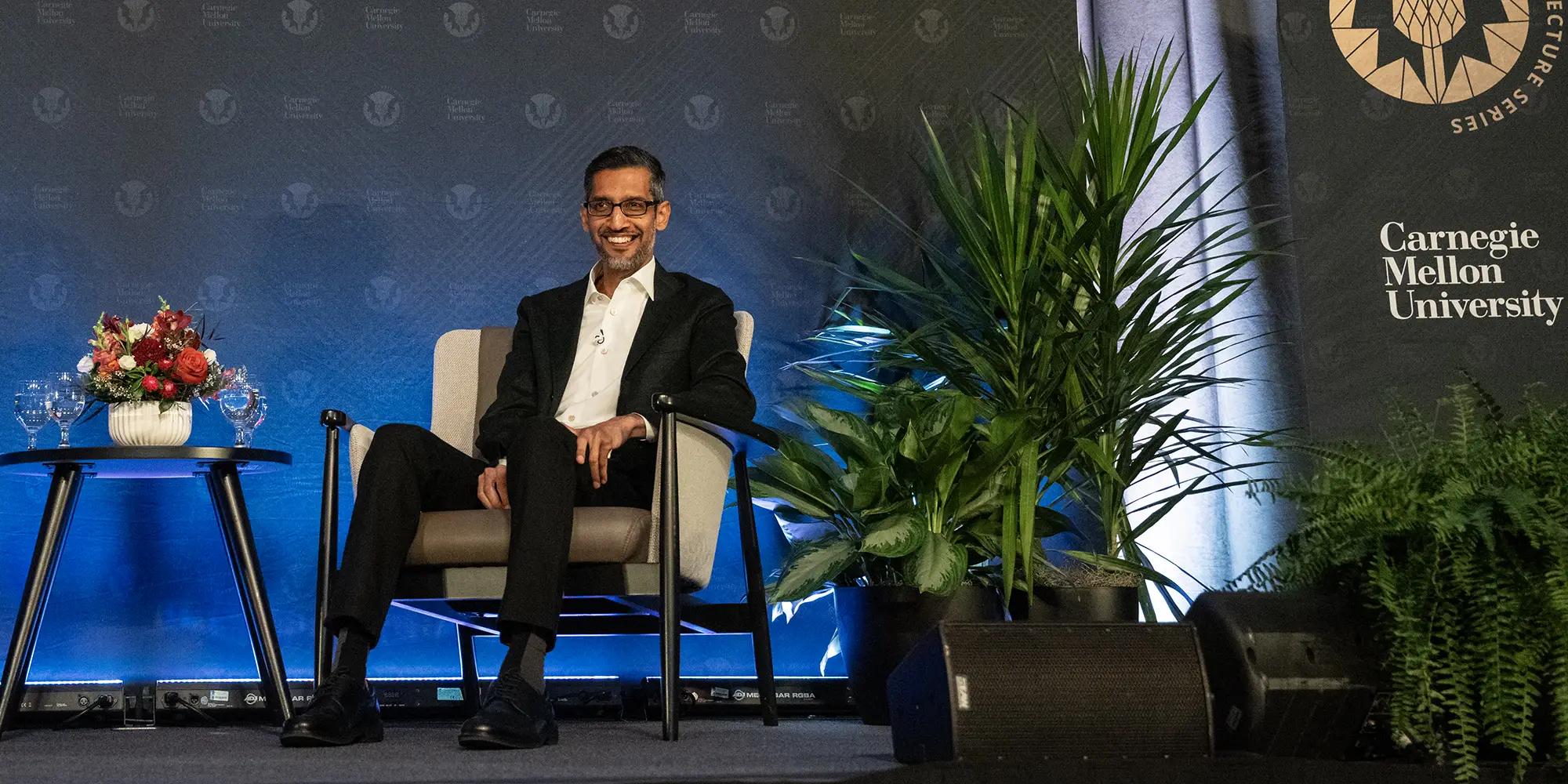
A Q&A with Google CEO Sundar Pichai
Media Inquiries
Following the President’s Lecture Series(opens in new window) event on Wednesday, Sept. 18, Google CEO Sundar Pichai sat for exclusive interviews with CMU-based media, including The Tartan(opens in new window) student newspaper, and The Piper(opens in new window), the faculty, staff and student community email newsletter.
The Piper interview covered his visit, interactions with various community members, and the future of AI. The following Q&A has been edited for clarity.
What did you see during your tour today that excited you?
I had a chance to see both your robotics teams(opens in new window) and the lunar rover teams(opens in new window), as well as the Delphi project(opens in new window), which is working on forecasting epidemiology.
The thing that struck was how much CMU is at the cutting edge of what I call "research and industry” — in an applied way — and the ingenuity of people to do things with limited resources and push boundaries.
But also, all those things are real systems engineering projects. It's not just software, it's hardware. It's, “How do you put it all together and work?”
And you can see people are very hands-on in their work. When you look at the rover, they pretty much built the whole thing, right? So I think it was incredible to see. A lot of it is student driven. Obviously working under supervision of faculty, the number of undergrads involved in these projects surprised me.
Google partnered with the Delphi project at various stages. The fact that CMU had the foresight to anticipate and do a project like that ahead of its time — all of that was very impressive.
What impressed you about the students here?
All the students looked like I could have been talking to some of our Google engineers. They seemed so steeped in the real world, they had a sense of their hands-on experience.
It impressed me how much initiative they have taken to move these projects forward. It's not like they are coming and doing a portion of it and leaving — these projects are pretty much student-run.
"AI will be so pervasive, you will interact with AI in your future in all walks of your life, both personally and professionally, and so CMU has better resources than most places in the world to do that — and that's an opportunity. I would say, 'Carpe diem!'"— Sundar Pichai
What should Carnegie Mellon students be doing to prepare for the future of AI as you envision it?
I do feel, over time, AI will help people tap into their potential more, including their creative potential. I think CMU has a breadth of programs and colleges. I was learning a lot more about how extraordinary your drama program(opens in new window) is, as an example.
I would, regardless of your discipline, familiarize yourself with AI. You could be in the creative industry learning to play with AI tools. You could maybe take a class on AI ethics. There are so many ways to familiarize yourself with AI, I think I would just have a sense of curiosity and learn more about it. That's all you need to do.
And you know, I think given AI will be so pervasive, you will interact with AI in your future in all walks of your life, both personally and professionally, and so CMU has better resources than most places in the world to do that — and that's an opportunity. I would say, "Carpe diem!"
What are some of the ways institutions like CMU can collaborate with industry leaders that haven’t yet been explored?
I think there are many areas, particularly when it comes to some of the cutting-edge areas like AI, that are resource intensive. And so I think public-private partnerships are going to be really important.
I think universities have a unique role to play. They can continue pushing the frontiers of research, but they also have a chance to partner closely to build real-world applications, increasingly.
It was exciting for me to see that your robotics team was closely working to incubate companies around robotics, and that there's a very symbiotic, close relationship between the industry around here in robotics and the academic side of the university. I think that serves as a good template.
What are some ways that CMU students can prepare for a career at Google?
I think most of the CMU graduates we recruit tend to be from the broad areas of computer science, machine learning, robotics, etc., so when we are looking for people, we are trying to see whether you can take your skills and translate it into your work.
And so we're imagining you in that context. The more experiences you can bring — practical experiences, hands-on experiences in which you're able to maybe build something — those are the kinds of people we're looking for. Entrepreneurial people.
I think showing that initiative and gaining that experience is the best way you can prepare.
Are there any other pieces of advice you’d like to share with the CMU community?
There's been so much progress. What is yet to happen in terms of innovation and technology will dwarf what we have accomplished now as humanity.
So that's the opportunity — to be a student of the school with the future ahead of you. I would just say to be positive and optimistic about that future, and enjoy that journey.
